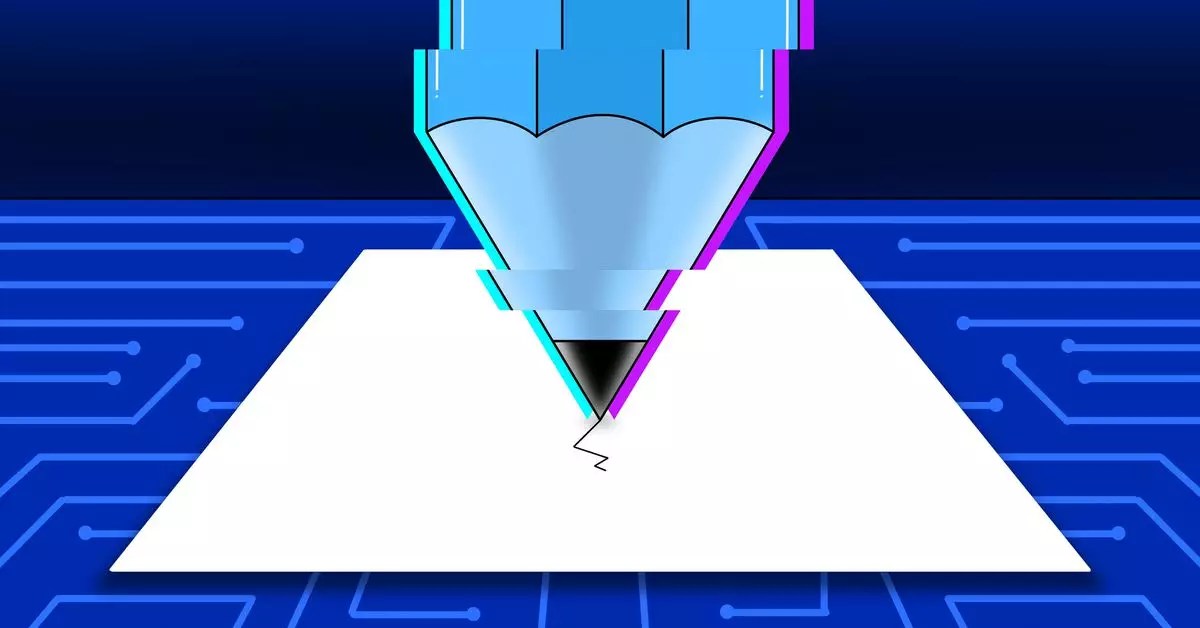In the contemporary discourse surrounding artificial intelligence, the intersection of copyright laws and AI training has emerged as a focal point of contention. Penguin Random House, a stalwart in the publishing industry, has recently made headlines with its decision to explicitly address this digital dilemma on the copyright pages of its books. By stating that “No part of this book may be used or reproduced in any manner for the purpose of training artificial intelligence technologies or systems,” Penguin Random House is not merely voicing a concern but is positioning itself at the forefront of an evolving narrative in copyrights and AI.
As AI technologies proliferate and companies increasingly leverage vast amounts of data to train their systems, the traditional frameworks of copyright law are being tested. The inclusion of a specific clause in Penguin Random House’s copyright pages is notable—though it may not be a legally binding assertion, it nonetheless serves as a formal declaration of intent. Unlike conventional copyright protections, which automatically apply to creative works, this clause reflects an emerging caution against the unregulated use of published material for AI training. This highlights a growing awareness within the publishing community of the need for explicit protections against potential misuse of intellectual property.
Penguin Random House appears to be leading a trend that could reshape how publishers view and safeguard their works in the AI age. With the rise of data mining and text scraping practices—where algorithms aggregate vast volumes of text for machine learning—the publishing industry realizes that traditional copyright measures may not suffice. This initiative positions Penguin Random House as a pioneer within the sector, potentially prompting other major publishers to adopt similar protective measures.
The timing of this initiative is also telling. It aligns with increasing scrutiny from regulators and a public dialogue about the ethical implications of AI training. As the European Union is already implementing frameworks that govern the use of data for AI, Penguin Random House’s decisive move signifies a proactive approach to intellectual property rights in this new digital frontier.
While the addition of such a clause can be interpreted as a precautionary measure, it invites a critical analysis of its effectiveness. After all, the copyright page functions as a deterrent more than an actionable legal mechanism. Much like a robots.txt file—used by websites to express preferences to web crawlers—Penguin Random House’s statement may resonate more as a symbolic gesture than as a legally enforceable directive. Copyright law already provides inherent protections, irrespective of the specific warnings on a copyright page.
In the broader context, this development raises pertinent questions about the future of intellectual property in the age of AI. What will it take for publishing houses to ensure their works remain safeguarded against increasingly sophisticated AI technologies? The industry’s response may well define the parameters of copyright law moving forward. Indeed, Penguin Random House’s initiative sets a precedent that could encourage other entities within the creative sector to articulate their own positions regarding the use of their works in AI training.
Penguin Random House’s updated copyright page is not just a simple amendment but a question mark hovering over the future of publishing as we know it. As the industry grapples with the implications of AI, one thing remains certain: the dialogue on copyright and artificial intelligence is only just beginning.


Leave a Reply